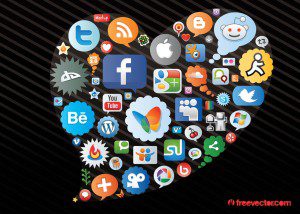by Abraham Casallas

Facebook, Twitter, Instagram, and LinkedIn are among the most popular social networking sites used by millions of people worldwide. They provide a medium over which one can share and exchange information with virtual communities.
As virtual communities continue to grow, so do the risks involved with using them. The vulnerabilities associated with these risks are often exploited by thieves, hackers and wrongdoers for malicious purposes, as they provide these individuals with valuable resources only a few clicks away!
Here are some tips you should consider when using social networking sites:
- Remember that the internet remembers. There is no “delete” button so be selective of what you share with the rest of the world. “It takes 20 years to build a reputation and five minutes to ruin it.” – Warren Buffet
- Be selective of who you befriend on a social networks. Only accept friend request from people you personally know, make sure to double check that they are who they say they are.
- Tighten up your privacy settings. Know what you share and who you are sharing it with. You do not want the right information to fall in the wrong hands.
- Have strong passwords. Weak passwords make your account an easy target for identity theft. Once someone gains access to your account they can impersonate you and act on your behalf.
Strong Password Generator: https://identitysafe.norton.com/password-generator/ - Be careful when allowing third party applications access to your account. Add-ons often share and even sell your information to other companies. Make sure to review their privacy agreements and understand how your information will be used.
- Turn off location services. They broadcast your locations out into the world. This makes you an easy target for stalkers and predators. Over time the accumulation of this data creates metadata which can be analyzed to pin point your day to day activities.
- Add a layer of security. Enable two factor authentication. This requires a user to provide two means of identification to log on. One of which is typically a password, and the other of which is typically a code that gets sent to your cellphone after you input your password.
- Watch where you click. Use caution when clicking on suspicious links. Hackers use clickbait (very appealing posts) to entice users to unknowingly download malware, Trojans and potentially unwanted software to their machine.
- Be cognizant of what you share. Do not post information that could put you or loved ones in danger (holiday plans, daily routines, place of employment) – this information can be used by criminals to plan malicious schemes.
- Secure your access points. Make sure that the devices used to access social media sites are password protected. Go the extra mile and encrypt them, this will make it nearly impossible for strangers to get access to your information.
Bonus Tip: Every now and then take a sabbatical from social media. Often we get so caught up in our virtual worlds that we forget to savor life it self. You’ll feel better about yourself while giving your personal info a break from the public eye.
